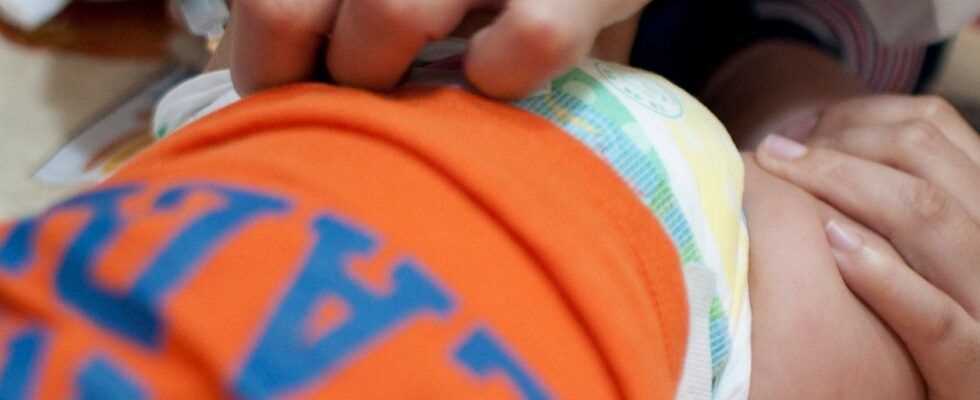Sometimes difficult to find your way among all the vaccines that your baby can or must give to the doctor. Let's take stock to make sure your child is well protected.
When you are a young parent, you often have the impression that you are spending your life with the pediatrician because there are so many appointments for the various baby vaccinations. Even if these sessions are never fun, they are necessary to protect not only your child effectively and for life against serious and sometimes fatal infectious diseases, but also those around him.
How does a vaccine work?
Because we are not naturally immune to certain diseases, vaccination helps strengthen our immune system and helps it fight against the viruses or bacteria that cause it. How? 'Or' What ? By introducing a tiny dose of antigens responsible for infectious diseases, the immune defenses will be stimulated and will "learn" to fight them effectively by developing adequate antibodies. In case of contact with the disease, the antibodies will be able to fight it without delay, thanks to the immune memory.
It is therefore by multiplying the number of children protected by vaccines that these infections can completely disappear.
What are the mandatory baby vaccines?
It is moreover because the vaccination coverage became insufficient for certain vaccinations but also because epidemics made their reappearance in France that the Ministry of Health decided to make compulsory eight additional vaccines, which until then had benefited from a simple recommendation, and this, for children born from January 1, 2018.
These eight vaccines are:
- pertussis vaccine: whooping cough, which can be serious or even fatal, has seen some increase in children and adults who have not recalled. In France, pertussis is one of the leading causes of death from bacterial infection in infants under 3 months of age.
- the haemophilus influenzae b vaccine: Haemophilus influenzae type B can cause serious infections, including meningitis.
- the hepatitis B vaccine: Hepatitis B is an infection of the liver that is spread by blood and other body fluids. In France, nearly 1,500 deaths a year are linked to hepatitis B.
- meningococcal C vaccine: serious meningococcal infections cause meningitis and septicemia. They affect around 600 people a year in France.
- the pneumococcal vaccine: in the most severe cases, pneumococcal infections can lead to meningitis.
- the measles vaccine, the mumps vaccine and the rubella vaccine, combined in MMR vaccination: Measles can cause lung complications, the rubella virus puts pregnant women at risk and mumps can cause complications, including viral meningitis.
These eight vaccines, which are now compulsory, are in addition to the three that were already compulsory:
- DT-Polio combined vaccination against diphtheria, tetanus, and polio: diphtheria and polio have disappeared in France, but cases of tetanus still occur in France in people whose vaccinations were not up to date.
What is the baby vaccination schedule?
If your infant's blood still contains maternal antibodies for 6 months after birth, the immunization schedule should be followed precisely, so that it is protected as quickly and as effectively as possible after this period.
You can follow the doctor’s recommendations and check your baby’s health card to make sure you’re not late in getting their vaccinations.
Here are the general recommendations for babies and children:
- For infants 2 months, then children 4 months and 11 months: one injection each for a combined vaccination against diphtheria, tetanus, polio, whooping cough, meningitis with Haemophilus influenzae b, meningitis, pneumonia and pneumococcal septicemia, and hepatitis B.
- At the age of 5 months, and possible up to 24 years: first dose for meningococcal C meningitis and septicemia vaccine.
- At the age of 12 months: a first injection for the MMR combined vaccination against measles, mumps and rubella and a second injection against meningitis and meningococcal C septicemia.
- For babies between 16 and 18 months: second dose for MMR combined vaccination.
- For a 6 year old child: recall of diphtheria, tetanus and polio vaccine, and recall of pertussis.
- Between the ages of 11 and 13: recall of diphtheria, tetanus and polio vaccine, and recall of pertussis.
For girls: vaccine against human papillomavirus (HPV) infections linked to cervical cancer.
To find out if your child's immunization schedule is affected by the Covid-19 epidemic, go to the website of the Ministry of Solidarity and Health, under Covid-19.
What vaccines are recommended for babies?
The recommendation of certain vaccines is carried out in specific cases:
- tuberculosis vaccination (BCG) for infants from 1 month after birth and up to 15 years of age, is recommended for children at risk (history, place of residence, etc.)
- yellow fever vaccination is mandatory for residents of Guyana over 12 months and for anyone staying there.
- the seasonal flu vaccine is recommended for children with compromised immune systems (chronic illness, etc.)
- vaccination against hepatitis A is recommended for children at risk (stay in a country where hepatitis A is prevalent, etc.)
How to take care of baby before and after a vaccine?
Getting vaccinated is never pleasant! To help your baby get through this sometimes difficult course, you can apply a pain-relieving patch to the injection area, which is very effective against pain. Parents will also try to be as relaxed as possible so as not to pass on any additional stress to their child. Easier to write than to do, we design it!
After the vaccine, in case of fever or pain, do not hesitate to give him Doliprane. If the fever persists, consult your doctor immediately.
And when parents do not want to vaccinate their children?
Parents who refuse to have their children vaccinated will not be able to place their child in nursery or school, and doctors who assist them in any falsification of vaccination certificates may be prosecuted, as will the parents themselves.
To know more :
